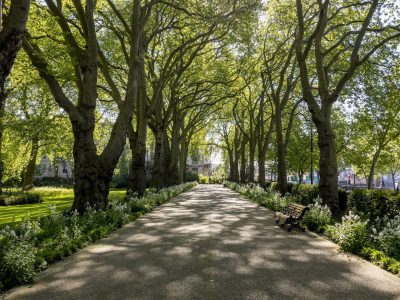
Temple Church Choir
We spoke to Thomas Allery, the new Director of Music at Temple Church, about the role of music within the Church
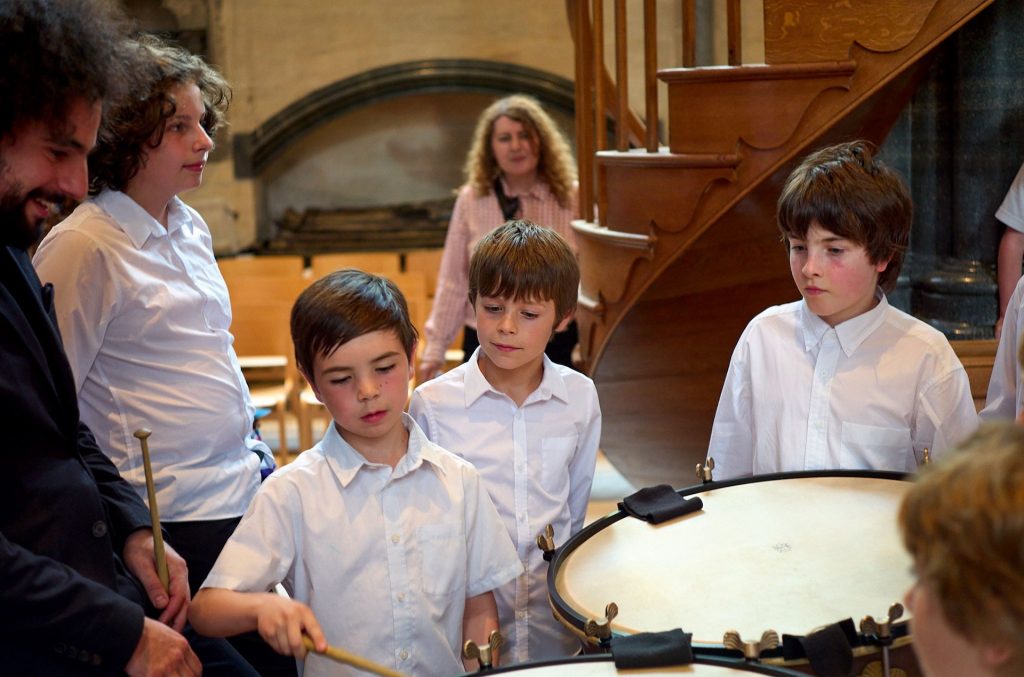
You have been Assistant Director of Music at Temple Church since 2019 and are taking up the role of Director of Music in September this year. How are you feeling about this new chapter?
I’m incredibly excited of course, but also keeping my mind clear ahead of the juggling of different tasks which come with responsibility for running the music department. I’ve become very fond of the Temple as a place to work and perform and I’m especially excited about bringing in some new ideas for our music programme here, and about enhancing our educational opportunities for young musicians. We are in an exciting place to make some bold moves into new projects and giving as many people as possible the opportunity to sing and gain musical skills. The training that a choristership offers to young people is life changing and life enhancing, and I want to create a sort of musical ecosystem in which there are learning opportunities right across the age range from age seven to post university and into the profession.
Tell me a bit about your career so far and how you ended up here.
My own musical training started in a local church choir in the West Midlands. It wasn’t a Cathedral choir, but a fantastic, friendly (and very well run) church choir with the traditional model of services on Sunday and a Friday choir practice. I started learning the organ at a young age there and soon started to play in church services. Without that start, I wouldn’t be here today. From there I studied in Oxford and then at the Royal College of Music. Whilst doing my postgraduate studies, I started to play and study the harpsichord which has since become a big part of my musical identity. I have worked in several churches in London now (including St Mary-le-Bow) and I most recently spent five years as Director of Chapel Music at Worcester College in Oxford.
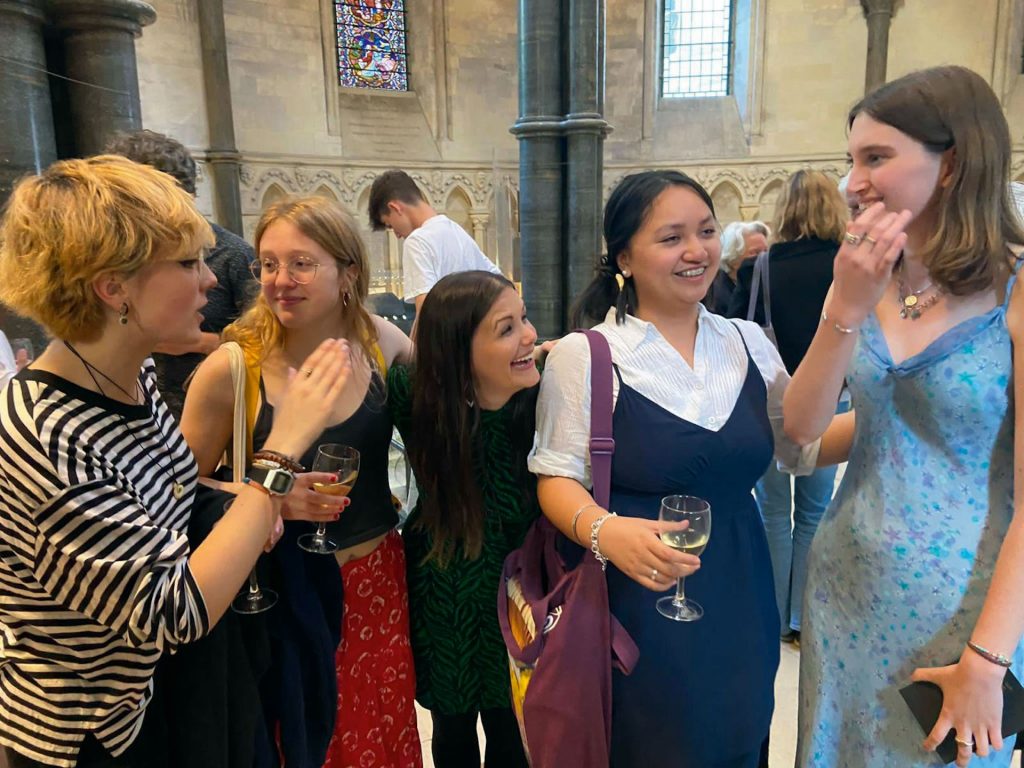
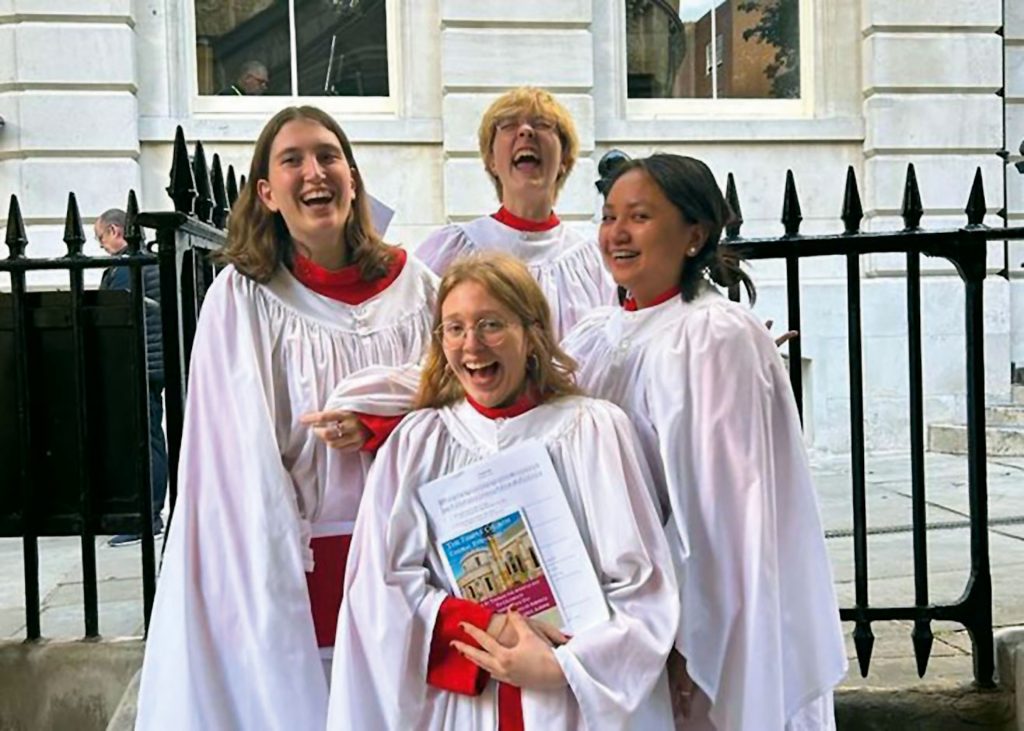
What do you think makes a really good choir?
A choir is first and foremost a team, so teamwork is the key. Good choral singing requires real active listening and a commitment from every singer to contribute to a greater whole with their energy and imagination. In that way singing is very much like acting where we try to bring something on the page to life. Many conductors stress about the music being together and in time, but I try to achieve this by inspiring everyone to say the same message in the same way. In this way, most technical matters sort themselves out. Live music is always about the here and now, so good choirs are ones which give energy and respond to each situation, communicating to their listeners and saying something new through their sound which will stay with their listeners.
What is a typical day like in the Temple Church music department?
A typical day is quite varied! Each weekday (apart from Tuesdays), we have our chorister rehearsal at 4.30pm after school, so our day is shaped by this. When we have a service or concert, I guess we are always slightly saving ourselves so that we can give our best in performance. A day can have auditions for new singers for the choir (both children and professional singers), or meetings and discussions with colleagues. We have to be organised with our music preparation and make sure we are ready for services or concerts coming up, including buying or hiring scores, or occasionally arranging or rewriting pieces. A lot of my headspace is concerned with musical programming, and jotting down ideas for programmes or collaborations which might not come up for some time down the line. As a team, we have a huge pastoral responsibility to our young musicians (choristers and choral scholars) so quite a bit of time is spent on careful scheduling and pastoral oversight to make sure everyone is thriving in a healthy and supportive environment. I love chatting with colleagues and bringing ideas to life over cups of tea. A musicians’ life can often be at the laptop, so it’s important to keep up musical preparation as well as essential emails and admin!
Over the years I have developed a specialism in early music, especially from the 17th and 18th centuries. I am part of a period ensemble called Ensemble Hesperi with whom I enjoy performing on the harpsichord. Chamber music is such a rewarding and challenging way to play, and I enjoy being inspired by my colleagues, and of course making the spirit of chamber music part of my conducting of choirs. My main interest as a player is in continuo accompaniment (a style of improvised accompaniment playing from figured numbers above the bass line). I love the freedom of baroque music and relishing in how much of this music is left to the performer to improvise and respond in the moment.
In 2021, the church introduced choral scholarships, could you tell us a bit about this?
The church introduced a scheme for female sopranos or altos in 2021, aimed at young pre-university musicians. They sing alongside our professional singers in services and concerts, as well as receiving singing lessons and a programme of musical workshops and mentoring sessions across the year. We have just come to the end of the second year of this scheme and it has been great to see this scheme working so well. One of the most important things we can offer is the opportunity for these musicians to grow musically and in their confidence going forward to university. By the end of the year, these students have been slotting into the choir just like the professionals. It’s also been lovely to see our team of singers supporting them and offering advice along the way.
Earlier this year, the Church and the Inns made a commitment to introducing opportunities for girls in the choir. How do you feel about this and what are you plans for this introduction?
This is an incredibly exciting move for the music of the church, and is very much the right time to be committing to this new direction. Girls’ choirs and girls in choirs are no new phenomenon and I look forward to this new challenge. There will be some changes of mindset required of us as a team, but I believe we are well set up in our core values of striving for excellence in musical teaching and opening up opportunities of a life changing opportunity. Teaching music is about responding to the needs of the individuals we work with to make a team, and that is the same with boys or girls. Our musical set up here means that we will opt for a mixed front row of boys and girls, completely evenly spread, with eight scholarships for girls and eight for boys.
Alongside concerts, the church is especially well known for promoting concerts as well as music within the liturgy. Do you have big plans for the coming years?
I have many exciting plans for the years to come. Since the pandemic, we have presented a number of rush hour concerts without interval, and these have gone down very well indeed with our audience members, often coming straight from work and having time to chat afterwards and get home. I enjoy collaborating with other musicians so much, and it is always exciting to invite guest musicians to perform alongside our choirs here. Our choristers recently enjoyed performing Handel with a baroque orchestra and they really came alive when responding to the sounds they heard. I also want to create programmes which highlight unusual links between musical periods and composers. As a harpsichordist, I feel most at home directing a choir and orchestra from the keyboard which slightly changes the traditional relationship of conductor and performer. The Temple Church Choir has a long history of commissioning works and giving premieres and this is something I look forward to continuing in the years to come too.
Widening access is key part of Inner Temple’s mission. What plans do you have that will support this in the years to come?
Last year I led a pilot scheme of a musical outreach to primary schools which was a great success, and I am looking forward to building this into a regular part of our musical programme. I led workshops with state primary schools, and invited them to the church for a joint celebration concert where they sang together and enjoyed singing in the special acoustics of the church. We demonstrated our fabulous organ to them (most having never heard a church organ before). This sort of project isn’t without challenges, of course, but it is so important that we use music as a tool to reach out to our neighbours and inspire those who would otherwise not have access to such musical opportunities.
The lack of music provision in primary schools is often in the media today with good reason, and the arts are getting ever more and more squeezed out and under-funded. The provision of music in schools across London is incredibly varied; now more and more arts organisations are making outreach a part of their work, and it is great that we can contribute to this work from our music department at the Temple, alongside our colleagues. Ultimately, it is about remaining relevant, engaging with our neighbours and looking outwards.
How is your team organized?
We have a wonderful team of musicians here, all working together to support our teaching and performance programme. Our department is run by Susan Keeling, music administrator, who links everyone and everything together. She looks after everything from arranging timetables, liaising with chorister parents, scheduling, booking musicians, booking spaces, to making squash and booking singers. In teaching I am supported by two wonderful singing teachers, Mike Smith and Ben Williamson, who teach the choristers individually, especially looking after their technique and vocal well-being. Aimee Presswood joined us last year as our choral scholar teacher and mentor. Emily Elias is our recently appointed chorister tutor who assists with the training of the choristers and supports their educational programme, and we have a wonderful organist, Charles Andrews who plays the organ for services and concerts here. He knows the Temple Church organ better than anyone and is a sensitive and colorful accompanist to our services and choir. Chorister well-being is key to our operation, and we are so fortunate to have two wonderful chaperones, Jane and Parnell who look after the choristers so well whenever they are here.
What is the best thing about being a musician at Temple Church?
The church is such a special building for its atmosphere, unique acoustics, and of course, fascinating history. It is amazing to be part of such a distinguished history of music, but also an exciting place to look into the future. As your readers know, the Temple itself is an inspiring environment in which to work and as musicians, we have the opportunity to meet and work alongside so many people every day, seeing life in all its layers.
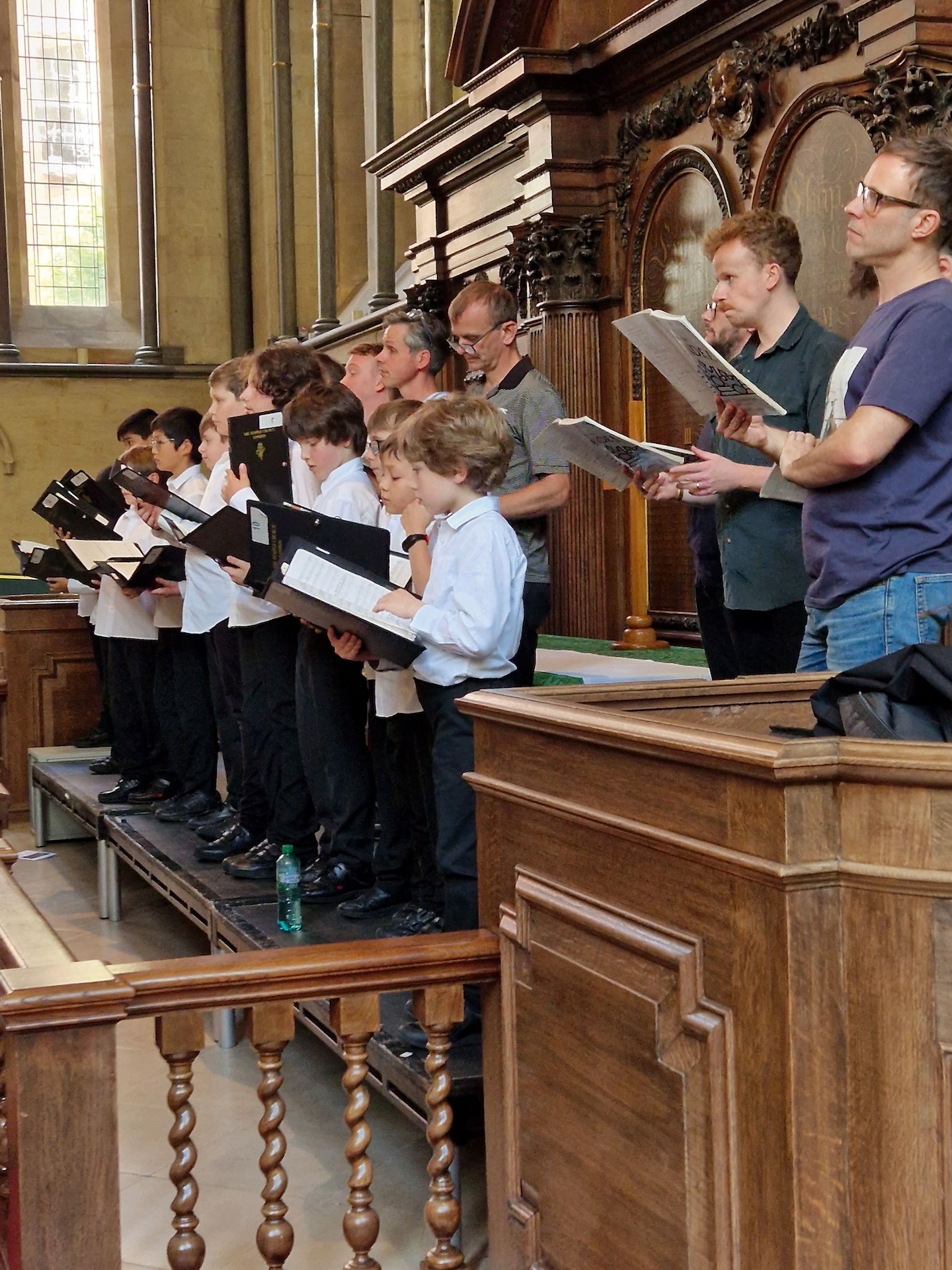
–
Thomas Allery
Director of Music at Temple Church
